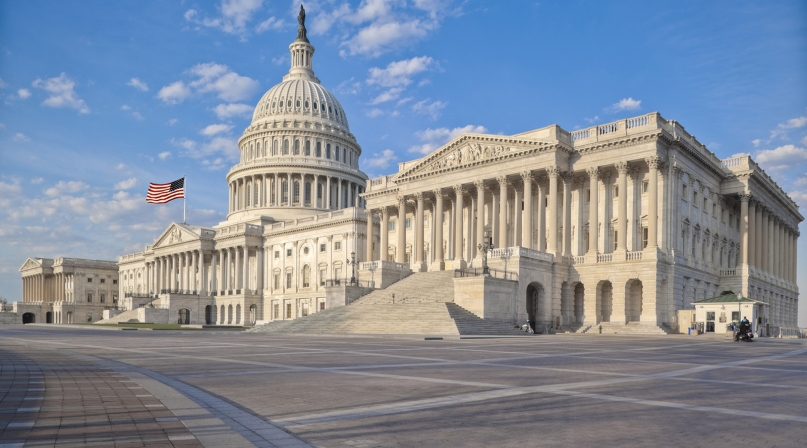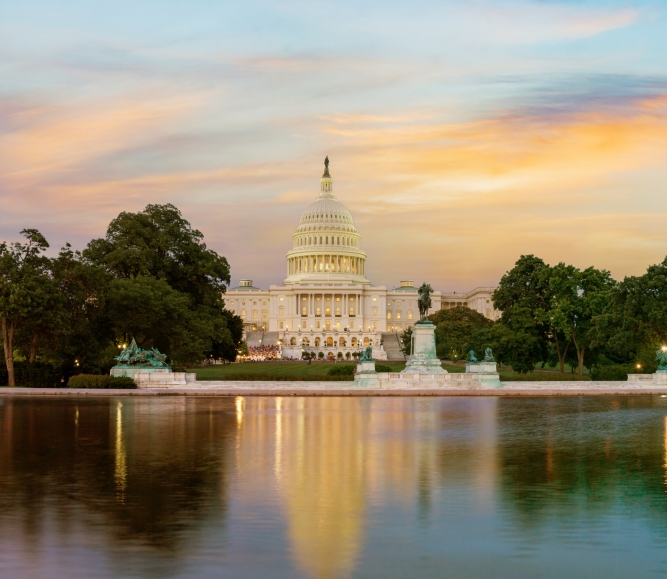UPDATED Congressionally Directed Spending for Fiscal Year 2025: How counties can navigate the earmarks process
Author

Charlotte Mitchell Duyshart
Upcoming Events
Related News

Key Takeaways
UPDATE: Community Project Funding (CPF) Guidance released for Fiscal Year (FY) 2025.
On April 25, the House released formal guidance for the FY2025 Community Project Funding requests. The accounts accepting requests are the same as FY2024. Counties should note that like last year the House is not accepting CPF requests for programs funded through the Labor, Health and Human Services (LHHS), Defense, Legislative Branch, State and Foreign Operations (SFOPS) and Financial Services and General Government (FSGG) appropriations bills. The most notable change in the House guidance from FY2024 is that non-profits are no longer eligible under the Department of Housing and Urban Development’s Economic Development Initiative (EDI) account. However, this change does not impact county eligibility.
On May 1, the House Appropriations Committee announced they were extending the CPF request deadline for three of the seven subcommittees that are accepting earmarks.
The House CPF request deadlines are listed below:
- May 3, 2024
- Agriculture, Rural Development, Food and Drug Administration, and Related Agencies
- Energy and Water Development and Related Agencies
- Homeland Security
- Military Construction, Veterans Affairs, and Related Agencies
- May 10, 2024
- Commerce, Justice, Science, and Related Agencies
- Interior, Environment, and Related Agencies
- Transportation, Housing and Urban Development, and Related Agencies
View the House guidance here.
On April 17, the U.S. Senate released formal guidance for FY2025 Community Project Funding requests. The accounts accepting requests are the same as FY2024. Counties should note that the Senate is accepting CPF requests for programs covered by the LHHS and FSGG bills while the House is not.
The Senate CPF request deadlines are listed below:
- May 8, 2024
- Military Construction, Veterans Affairs and Related Agencies
- Agriculture, Rural Development, Food and Drug Administration, and Related Agencies
- May 9, 2024
- Commerce, Justice, Science, and Related Agencies
- Financial Services and General Government
- May 10, 2024
- Energy and Water Development and Related Agencies
- May 13, 2024
- Transportation, Housing and Urban Development, and Related Agencies
- May 14, 2024
- Labor, Health and Human Services, Education and Related Agencies
- May 15, 2024
- Homeland Security
- Interior, Environment, and Related Agencies
View the Senate guidance here.
Individual member offices may request that all projects are submitted to them prior to the dates listed in this blog. Counties should contact their members of Congress for further information.
The Fiscal Year (FY) 2025 Congressional appropriations process has begun with the enactment of both FY 2024 appropriations packages (P.L. 118-42/P.L. 118-47). Since FY 2022, a notable feature of the appropriations process has been the return of earmarks, now known as Congressionally Directed Spending (CDS). The CDS process allows members of Congress to request federal funding for specific projects in their district or state that have a federal nexus and meet certain other requirements.
What is Congressionally Directed Spending?
The current CDS process is a stark contrast to the pre-2011 earmark process. Following a ten-year ban, in 2021 Congress brought back a revamped earmark process with increased transparency now referred to as CDS. In order to submit project requests to the appropriations committee, members of Congress must post their project submissions on their websites so that they are publicly available along with documentation certifying they, their spouse and family have no personal financial interest in the projects they request funding for.
How can counties apply for CDS?
Counties have been eligible CDS recipients in previous fiscal years. NACo encourages counties to contact their members of Congress directly to learn what information is required to apply as applications differ from office to office. Counties can click here to find out which members of Congress represent them. Counties can also view district and specific examples by visiting their respective member websites.
FY 2025 CDS information
To date, the U.S. House and Senate Appropriations Committee have not issued formal guidance for FY 2025 CDS submissions so details including project eligibility and submission deadlines remain unclear.
Another factor adding to the uncertainty of the FY 2025 process is the recent announcement that Rep. Kay Granger (R-Texas) is stepping down as Chairwoman of the House Appropriations Committee with the enactment of FY 2024 appropriations legislation. Whoever becomes the next Chair of the House Appropriations Committee will have the ability to alter the requirements for FY 2025 CDS projects.
Information that could change from FY 2024 to FY 2025 is listed below:
- Whether CDS will be allowed in FY 2025
- The deadlines for submitting projects
- Which types of projects are allowed in CDS
- Which accounts will be eligible for applications
- Who is eligible to apply
- What information will be required in the application process
What’s next?
House and Senate Appropriations Committees will release formal guidance for FY 2025 submissions. As that guidance is released, NACo will update counties with more information.
Resource
Legislative Analysis for Counties: The Consolidated Appropriations Act of 2023

Related News

U.S. House passes final minibus funding package
Congress introduced the final FY 2026 Appropriations package, including key county priorities related to transportation, housing, health, emergency management and public safety

U.S. Congress passes minibus funding package
U.S. House and Senate appropriators passed a “minibus” appropriations package containing Fiscal Year (FY) 2025 Interior-Environment, Commerce-Justice-Science and Energy-Water spending bills.

Federal district court issues ruling preventing the federal government from imposing immigration compliance mandates on grant recipients
On November 4, a federal judge in Rhode Island ruled that the U.S. Department of Transportation cannot condition federal grant funding on a recipient’s cooperation with federal immigration enforcement efforts.